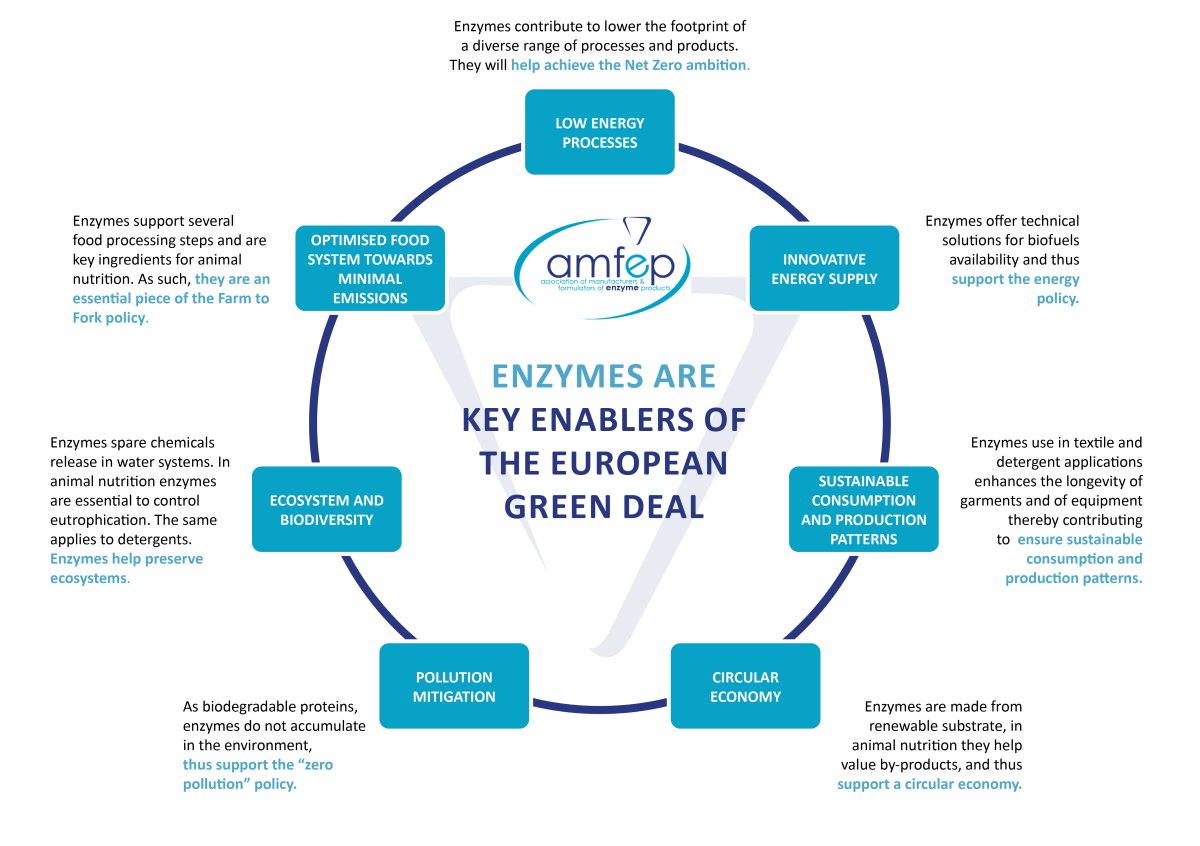The assets of enzyme technologies to drive environmental performance
Enzymes are proteins produced in nature by all living organisms. They enhance the targeted biological reactions that support Life.
Enzymes are industrially obtained from renewable materials, through biotechnological processes involving the cultivation of bacteria, yeasts or fungi, or enzyme extraction from plant or animal tissue.
Enzymes are used in a variety of industrial applications such as food & beverage, animal nutrition, detergents, textile production. They enhance a number of reactions that drive environmental efficiency across many diverse EU industrial sectors, in small to large companies.
Enzymes help abate different environmental impacts, from climate change to water quality. Enzymes are contributing to circular economy by reducing waste and helping enable using byproducts in other production cycles.
Enzymes are active at very low dose, allowing ‘doing more with less’. They are designed towards an efficient use of resources and are readily biodegradable.

In November 2022, AMFEP was welcomed as a signatory of the EU Code of Conduct on responsible Food business and marketing practices. To learn more please follow this link.
AMFEP 2023 annual report can be found in this link.
AMFEP 2024 annual report can be found in this link



